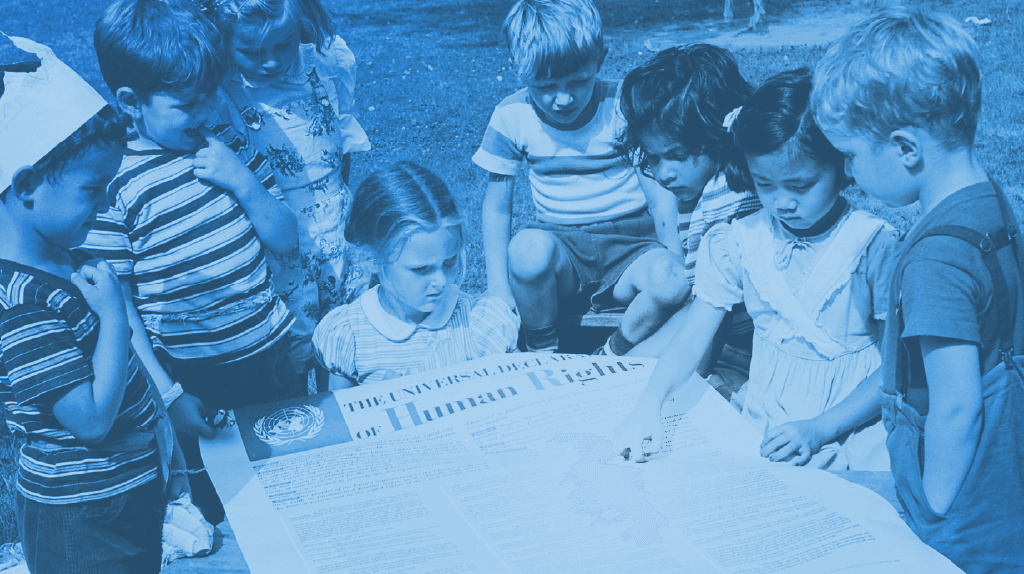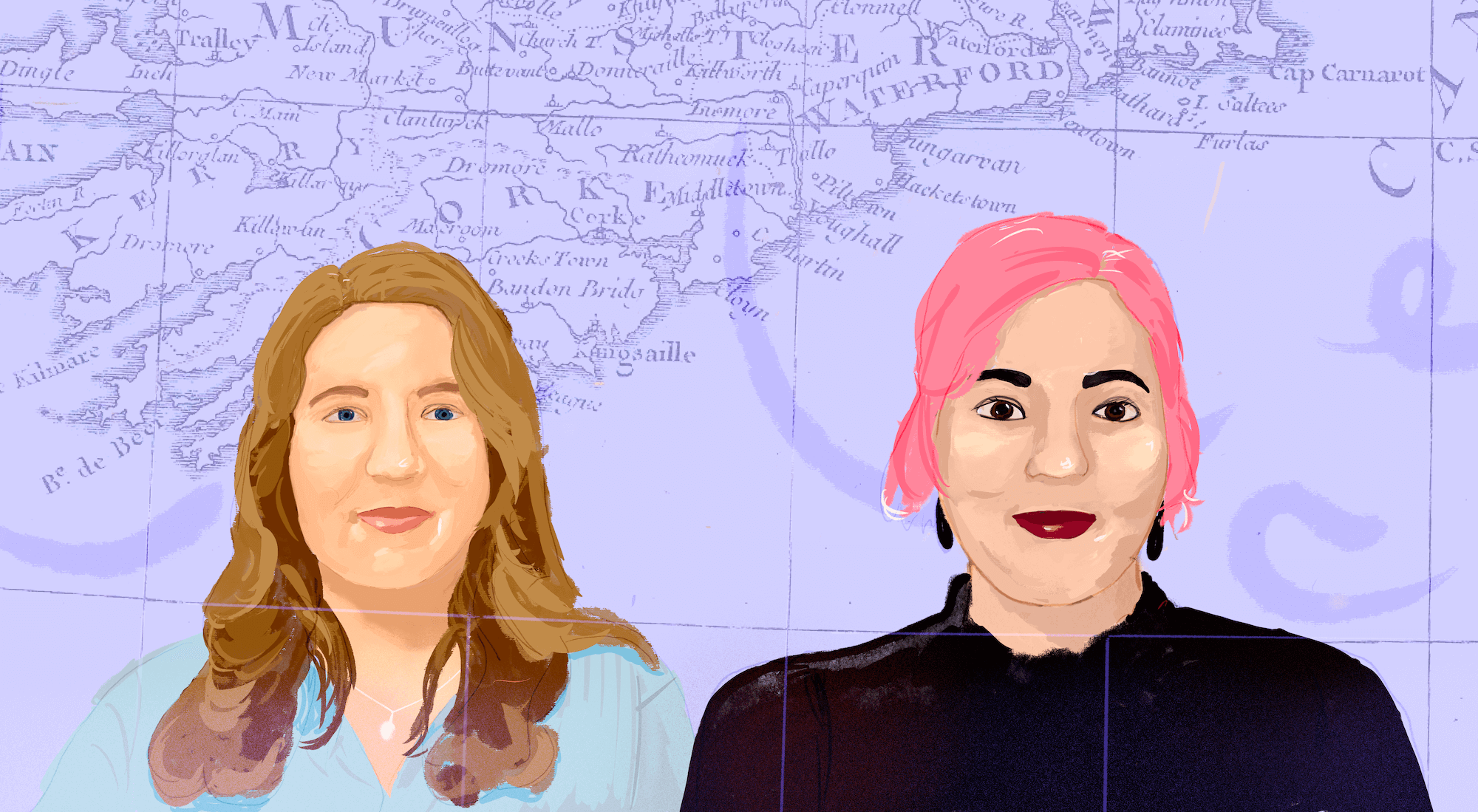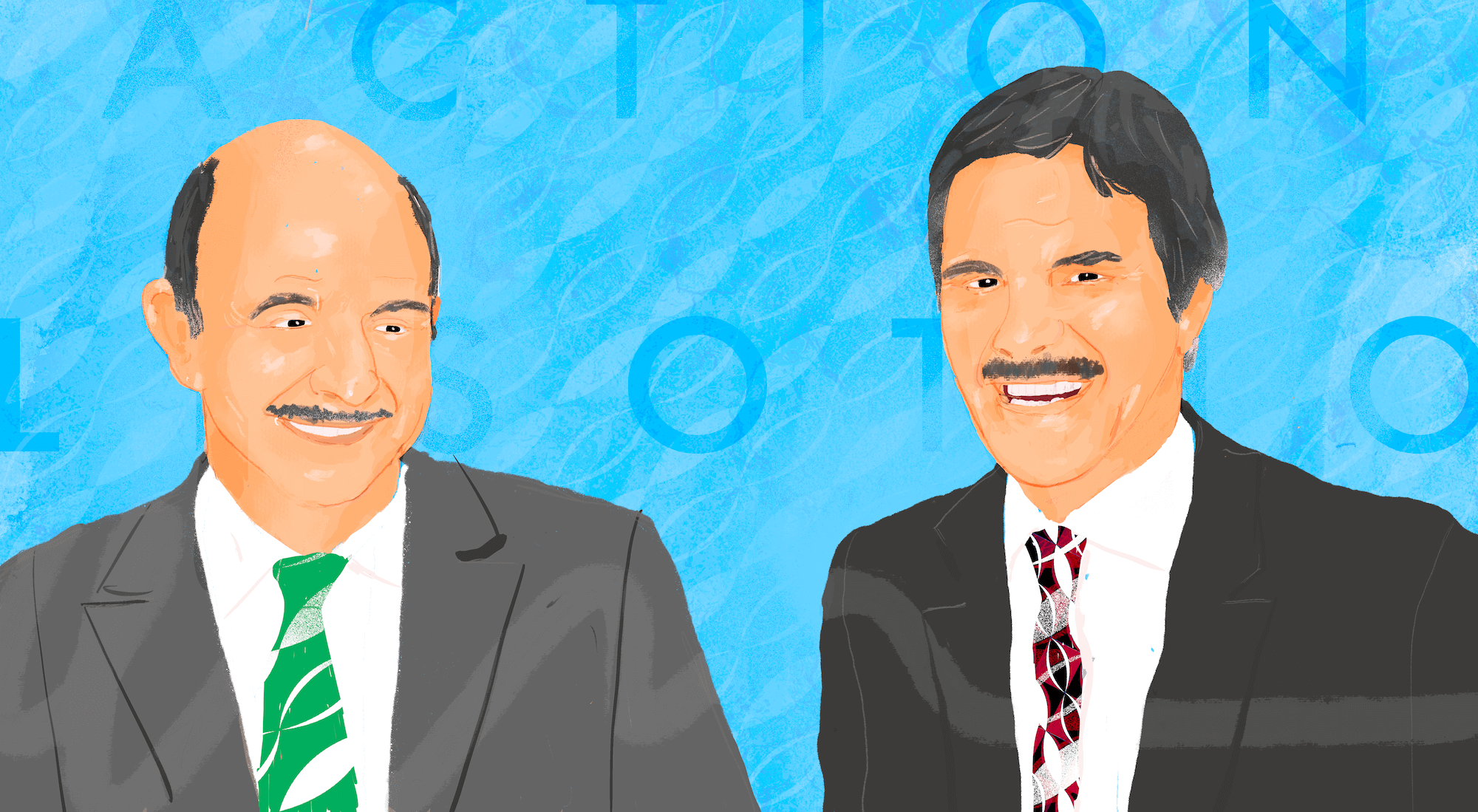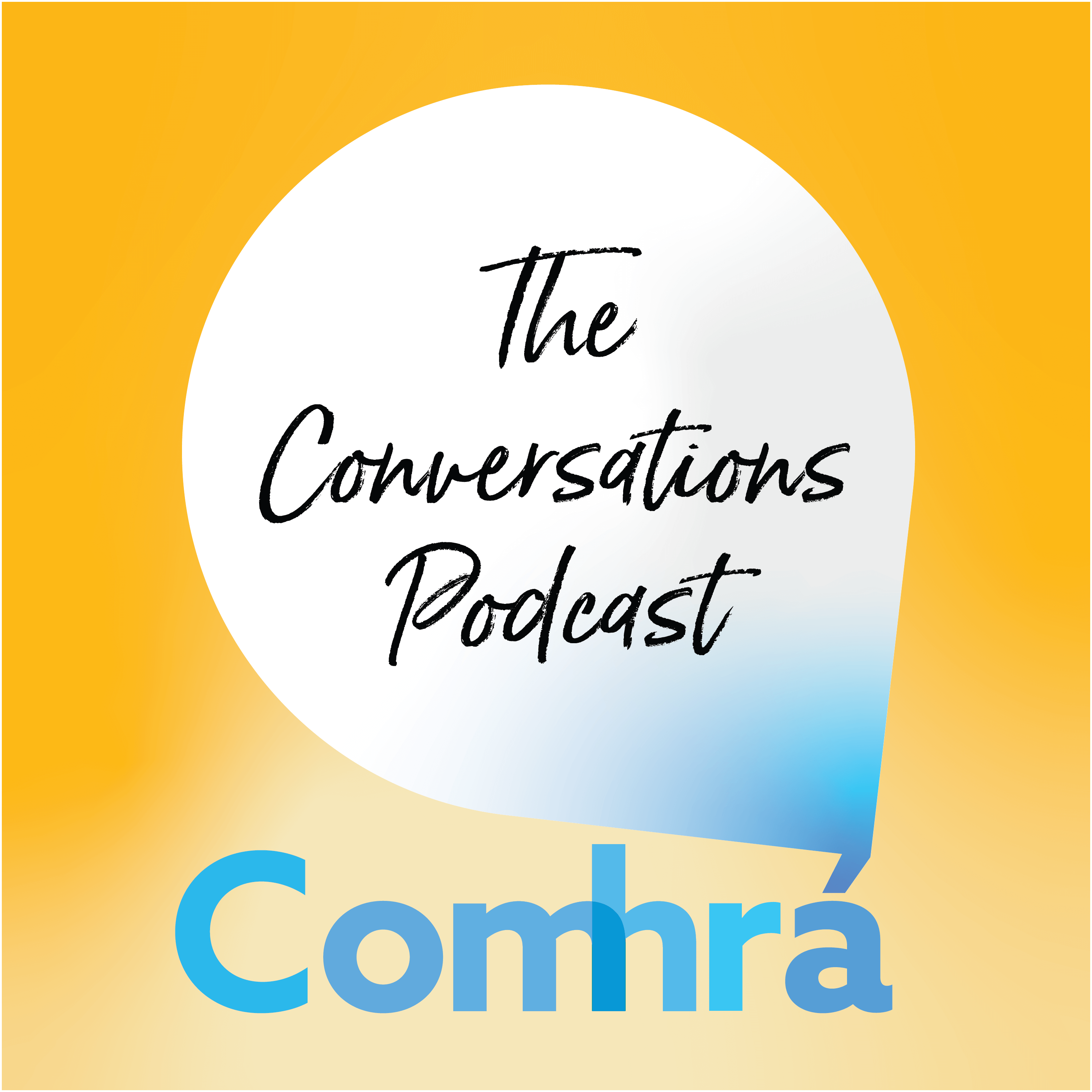
Comhrá
The Conversations Podcast
We called our podcast Comhrá* (which means ‘conversation’) because we love to talk and we know the best way to get to know each other is to settle down for a chat. Join us on Comhrá where we share stories and ideas and generally chat about life in all its complexity and glory. (Comhrá is an initiative of the Irish Bahá’í community)
*Comhrá is an Irish word and is pronounced co-raw
Subscribe & listen on your favourite podcast directory
Subscribe & listen on your favourite podcast directory
Google Podcast
Google Podcast
Sparks of Hope series
Sparks of Hope series
The inaugural series for the Comhrá podcast is called 'Sparks of Hope' inspired by the following quote...
"Consider thou how one spark sets on fire a great forest. Therefore, there is great hope, and the favor and grace of the Almighty is limitless."
‘Abdu’l-Bahá


Sparks of Hope Episode 1: Connecting the Spirit
Sparks of Hope Episode 1: Connecting the Spirit
This episode of Sparks of Hope introduces us to Marie and Kevin Keogh, who share their thoughts on how, and why, connecting with each other, and with our spiritual natures, is vital for our wellbeing. In sharing some of their own experiences, Kevin and Marie explain why they believe that these connections offer energy, insight, solace and, most of all, hope.
Having had personal experience of the tangible benefits of prayer, Kevin and Marie have always tried to create spaces to bring people together and to foster this interconnectedness. For a number of years they ran a very successful public devotional gathering in the Hunt Museum in Limerick. At this weekly event people of many religions - and none - gathered to share prayers, poetry, reflections and friendship.

COVID-19 forced this event to be suspended. Undeterred by the new circumstances, the Keoghs regrouped and moved their ‘space’ online. Now an online devotional meeting has taken the place of the Hunt Museum gathering, and this too is going from strength to strength.
Marie and Kevin’s own personal experiences with prayer and spiritual connection help to motivate them. Combined with this personal motivation is a potent mix of hard work, openness and acceptance of others, which overall provides an example of how, we each can, in our on ways, foster wellbeing and become promotors of hope.

Sparks of Hope Episode 2: Roots & Wings
Sparks of Hope Episode 2: Roots & Wings
On International Human Rights Day, Dr. Iarfhlaith Watson, Head of UCD School of Sociology, chats with Brendan McNamara about human rights, identity and growing up ‘different’ in Ireland in the 1970s and 80s. In this wide ranging discussion, Iarfhlaith shares his thoughts about how both his personal experiences and his research have contributed to his belief in the importance of identity in developing healthy and sustainable diversity in our societies.

As he was growing up Irish was Iarfhlaith’s first language. As a result, he experienced what it is to embody that most symbolic element of ‘Irishness’, while ironically also automatically belonging to a minority - namely people for whom Irish is their first language. But this, and other aspects of the development of his identity that set him apart from the mainstream also, ultimately, helped him to see and appreciate the advantages of diversity.
Iarfhlaith explores various issues including the importance of being rooted in our own culture and identity if we are to confidently soar high enough to gain a broader view of the diversity all around us. This world embracing perspective will then allow us to learn about and value each other and come to see our very differences as ‘gems’ that can enrich our lives and our societies.
Sparks of Hope Episode 3: Building Common Ground - the New Community Men’s Shed
Sparks of Hope Episode 3: Building Common Ground - the New Community Men’s Shed
In Episode 3 of Sparks of Hope, Frank Kennedy chats to Brian O’Flanagan about his involvement in the setting up of the New Community Men’s Shed in Waterford. A slightly different take on the concept of men’s sheds, the Waterford New Community Men’s Shed is a cooperative collective of migrant men, many living in direct provision.
In this wide-ranging chat, Frank describes the challenges they faced and how they had to work hard to find common ground in order to go forward. Many of the members had suffered trauma and persecution and were living in very uncertain circumstances as they awaited the results of their asylum applications. These factors added to the normal tensions and issues to be found in any new project and for a while it looked as if some of the problems might be insurmountable.
Then, as Frank explains, just as they were reaching the conclusion that the project was not going to work, they decided to have one last attempt at searching for common ground. In an unusual move, the New Community Men’s Shed organisers looked to the diverse religious traditions in their group for the solution. They found the common ground they need embedded in the various religious traditions of the men in the group.
In Episode 3 of Sparks of Hope, Frank Kennedy chats to Brian O’Flanagan about his involvement in the setting up of the New Community Men’s Shed in Waterford. A slightly different take on the concept of men’s sheds, the Waterford New Community Men’s Shed is a cooperative collective of migrant men, many living in direct provision.
In this wide-ranging chat, Frank describes the challenges they faced and how they had to work hard to find common ground in order to go forward. Many of the members had suffered trauma and persecution and were living in very uncertain circumstances as they awaited the results of their asylum applications. These factors added to the normal tensions and issues to be found in any new project and for a while it looked as if some of the problems might be insurmountable.
Then, as Frank explains, just as they were reaching the conclusion that the project was not going to work, they decided to have one last attempt at searching for common ground. In an unusual move, the New Community Men’s Shed organisers looked to the diverse religious traditions in their group for the solution. They found the common ground they need embedded in the various religious traditions of the men in the group.

Ideas like forgiveness, love, support and friendship - central tenets of all religions - became the common ground and allowed them to build a flourishing initiative with the power to change lives. Discussing these concepts and putting these beliefs into practices in their group turned the whole enterprise around.
Now everything is different. Once they identified common ground they rapidly began to build on it. Men who were originally suspicious and mistrusting of each other became friends. Nowadays, far from fighting and competing, they support and assist each other whenever they can. One of the keys to success in the New Community Men’s Shed is their celebration of differences. This approach has helped them to create an environment that brings the idea of ‘diversity advantage’ to life.The whole process has been so successful that the men have also been able to create a multi-faceted educational and social environment associated with their Men’s Shed.
The work done by the Waterford New Community Men’s Shed has been covered in the national media and they are also offering to work with similar initiatives around the country to help more people build common ground. As it goes from strength to strength the hard work, vision and dedication of these men as they overcome obstacles and build bonds of friendship is an inspirational model for real community development in all settings.
Ideas like forgiveness, love, support and friendship - central tenets of all religions - became the common ground and allowed them to build a flourishing initiative with the power to change lives. Discussing these concepts and putting these beliefs into practices in their group turned the whole enterprise around.
Now everything is different. Once they identified common ground they rapidly began to build on it. Men who were originally suspicious and mistrusting of each other became friends. Nowadays, far from fighting and competing, they support and assist each other whenever they can. One of the keys to success in the New Community Men’s Shed is their celebration of differences. This approach has helped them to create an environment that brings the idea of ‘diversity advantage’ to life.The whole process has been so successful that the men have also been able to create a multi-faceted educational and social environment associated with their Men’s Shed.
The work done by the Waterford New Community Men’s Shed has been covered in the national media and they are also offering to work with similar initiatives around the country to help more people build common ground. As it goes from strength to strength the hard work, vision and dedication of these men as they overcome obstacles and build bonds of friendship is an inspirational model for real community development in all settings.

Sparks of Hope Episode 4: Community in Diversity
Sparks of Hope Episode 4: Community in Diversity
This episode of Sparks of Hope features Waterford sisters-in-law Sami and Ciamh Alexander in conversation about difference, similarity, racism, love, community and the need for all of us to relearn the value of ‘minding each other.’
Sami’s background features a mix of ethnicities and cultures that range from Australian and American to Egyptian and African. In contrast, Ciamh was born and raised in Ireland by white, Irish parents. Ciamh explores with Sami some of her experiences as a woman with a multi-ethnic background and also chats with her about how she finds living in Ireland.

Because Sami looks white she understands what it is to be afforded white privilege, but she has also experienced having that privilege revoked when her ethnic background becomes an issue. This sudden, unexpected racism from people she already knows and trusts carries with it an additional layer of shock and betrayal. An insightful discussion about the existence of racism in almost every country - including Ireland - includes a look at the ways this insidious problem destroys the potential of societies as well as individuals, and also explores the solutions to this issue.
In this wide-ranging chat, Sami and Ciamh also discuss creating community gardens with their neighbours during the pandemic, the vital contribution of diversity to social well-being and the lessons we can learn from indigenous communities about caring for each other. With a clear view of the problems besetting our societies, Ciamh and Sami have an equally clear vision for the steps we can all take to solve these problems and create safe, equal and inclusive communities that can really flourish.

Sparks of Hope Episode 5: Nobody’s Safe Until Everybody’s Safe
Sparks of Hope Episode 5: Nobody’s Safe Until Everybody’s Safe
This episode of Sparks of Hope features friends, Paul Hanrahan and Pat Murphy, chatting about how a diverse group of Tralee locals, with little or no development experience, decided to set up an NGO when they learned about the suffering of the Basotho people who lived halfway around the world.
Action Lesotho, founded in Kerry in 2003 by this group of ordinary people, nowadays provides food, education and training in the tiny, land-locked country of Lesotho, in Southern Africa. Paul and Pat’s conversation explores the development of the organisation and the many lessons learned along the way. Paul muses on the fact that, though they did make mistakes, they also, luckily, did enough, ‘right things’ in order to keep going and keep developing.
Nowadays, while Action Lesotho does supply food and emergency aid when needed, their guiding principles are sustainability and capacity building. While the work in Ireland is entirely voluntary, the work in Africa is carried out by paid local workers. Paul explains how they have developed a skilled team of local people who are rapidly acquiring the skills needed to sustain the work on the ground.
This episode of Sparks of Hope features friends, Paul Hanrahan and Pat Murphy, chatting about how a diverse group of Tralee locals, with little or no development experience, decided to set up an NGO when they learned about the suffering of the Basotho people who lived halfway around the world.
Action Lesotho, founded in Kerry in 2003 by this group of ordinary people, nowadays provides food, education and training in the tiny, land-locked country of Lesotho, in Southern Africa. Paul and Pat’s conversation explores the development of the organisation and the many lessons learned along the way. Paul muses on the fact that, though they did make mistakes, they also, luckily, did enough, ‘right things’ in order to keep going and keep developing.
Nowadays, while Action Lesotho does supply food and emergency aid when needed, their guiding principles are sustainability and capacity building. While the work in Ireland is entirely voluntary, the work in Africa is carried out by paid local workers. Paul explains how they have developed a skilled team of local people who are rapidly acquiring the skills needed to sustain the work on the ground.

Action Lesotho has benefitted from grants from Irish Aid and other funders, but it is mostly funded by the efforts of a stalwart group of supporters in Kerry and Cork. A team of more than 30 dedicated volunteers runs the Action Lesotho bric-a-brac and book shops in Tralee. Many of these locals have been working with, and supporting, the organisation since the beginning and share Paul’s view of service as an opportunity rather than a burden.
Close contact with people on the ground in Lesotho has given Paul a deep understanding of the inequalities in the world and how theses are currently being magnified by the COVID-19 pandemic. He describes how a country like Lesotho may well end up waiting years before its people have access to vaccination and the potential consequences for all of us if we choose to ignore the welfare of our fellow human beings.
This story of the Kerry people who founded and support Action Lesotho bears out the famous statement by anthropologist, Margaret Mead, “Never doubt that a small group of thoughtful, committed citizens can change the world; indeed, it's the only thing that ever has.”
Action Lesotho has benefitted from grants from Irish Aid and other funders, but it is mostly funded by the efforts of a stalwart group of supporters in Kerry and Cork. A team of more than 30 dedicated volunteers runs the Action Lesotho bric-a-brac and book shops in Tralee. Many of these locals have been working with, and supporting, the organisation since the beginning and share Paul’s view of service as an opportunity rather than a burden.
Close contact with people on the ground in Lesotho has given Paul a deep understanding of the inequalities in the world and how theses are currently being magnified by the COVID-19 pandemic. He describes how a country like Lesotho may well end up waiting years before its people have access to vaccination and the potential consequences for all of us if we choose to ignore the welfare of our fellow human beings.
This story of the Kerry people who founded and support Action Lesotho bears out the famous statement by anthropologist, Margaret Mead, “Never doubt that a small group of thoughtful, committed citizens can change the world; indeed, it's the only thing that ever has.”
Action Lesotho has benefitted from grants from Irish Aid and other funders, but it is mostly funded by the efforts of a stalwart group of supporters in Kerry and Cork. A team of more than 30 dedicated volunteers runs the Action Lesotho bric-a-brac and book shops in Tralee. Many of these locals have been working with, and supporting, the organisation since the beginning and share Paul’s view of service as an opportunity rather than a burden.
Close contact with people on the ground in Lesotho has given Paul a deep understanding of the inequalities in the world and how theses are currently being magnified by the COVID-19 pandemic. He describes how a country like Lesotho may well end up waiting years before its people have access to vaccination and the potential consequences for all of us if we choose to ignore the welfare of our fellow human beings.
This story of the Kerry people who founded and support Action Lesotho bears out the famous statement by anthropologist, Margaret Mead, “Never doubt that a small group of thoughtful, committed citizens can change the world; indeed, it's the only thing that ever has.”
Action Lesotho has benefitted from grants from Irish Aid and other funders, but it is mostly funded by the efforts of a stalwart group of supporters in Kerry and Cork. A team of more than 30 dedicated volunteers runs the Action Lesotho bric-a-brac and book shops in Tralee. Many of these locals have been working with, and supporting, the organisation since the beginning and share Paul’s view of service as an opportunity rather than a burden.
Close contact with people on the ground in Lesotho has given Paul a deep understanding of the inequalities in the world and how theses are currently being magnified by the COVID-19 pandemic. He describes how a country like Lesotho may well end up waiting years before its people have access to vaccination and the potential consequences for all of us if we choose to ignore the welfare of our fellow human beings.
This story of the Kerry people who founded and support Action Lesotho bears out the famous statement by anthropologist, Margaret Mead, “Never doubt that a small group of thoughtful, committed citizens can change the world; indeed, it's the only thing that ever has.”
Action Lesotho has benefitted from grants from Irish Aid and other funders, but it is mostly funded by the efforts of a stalwart group of supporters in Kerry and Cork. A team of more than 30 dedicated volunteers runs the Action Lesotho bric-a-brac and book shops in Tralee. Many of these locals have been working with, and supporting, the organisation since the beginning and share Paul’s view of service as an opportunity rather than a burden.
Close contact with people on the ground in Lesotho has given Paul a deep understanding of the inequalities in the world and how theses are currently being magnified by the COVID-19 pandemic. He describes how a country like Lesotho may well end up waiting years before its people have access to vaccination and the potential consequences for all of us if we choose to ignore the welfare of our fellow human beings.
This story of the Kerry people who founded and support Action Lesotho bears out the famous statement by anthropologist, Margaret Mead, “Never doubt that a small group of thoughtful, committed citizens can change the world; indeed, it's the only thing that ever has.”

Sparks of Hope Episode 6: Everyone's Here for a Reason
Sparks of Hope Episode 6: Everyone's Here for a Reason
Friends and neighbours Rosie McAdam and Claire Dawson chat about life, education and the need to decide where you want to be - and then, work out what you need to do in order to get there. Rosie is passionate about her belief that no matter who we are we can all contribute to the well-being of our societies.
Born with the condition commonly known as brittle-bone disease, Rosie recounts some of her very rich and varied life experiences. Intertwined with these stories she and Claire also reflect on the supports, accompaniment and opportunities we all need to fulfil our potential.
In the course of the chat Rosie speaks about the social model of disability which points out that you are only as disabled as your environment. The realisation of this fact can help create change at every level from grassroots to institutions. As a wheelchair user, Rosie understands, for example, the issues that exist when buildings are inaccessible, but it has been her experience that where there’s a will there’s definitely a way! Whether that’s someone making a building accessible, or schoolchildren adapting their playground games to include their friend who uses a wheelchair, the obstacles to inclusion are often easier to remove than we think.
Inspirational, entertaining and insightful Rosie reflects on how her earlier experiences with Sr. Catherine - a nun in the residential unit in which she lived for the first few years of her life - empowered her and shaped her view of how she saw herself. Sr. Catherine was an inspirational woman who understood the need to patiently foster independence and empower the children in her care through helping them to develop the skills they needed to be independent. Sr. Catherine was also a believer in the importance of education. Both of these values have guided Rosie throughout her life and helped her overcome obstacles and achieve her dreams.
Claire and Rosie reflect on how there are many disabilities - both visible and invisible - and how the key to inclusion and encouragement is for all of us to simply be open minded about each other. We can change the narrative by forgetting stereotypes and looking at what people can do and how they can contribute rather than focusing on what they can’t do. In other words, seeing the potential in people and understanding that education and support are the keys to unlocking that potential. If we were all to do that then everyone as an individual, and society as a whole, would benefit.
As Rosie puts it so succinctly - “Everybody can contribute something to the world and it’s just sometimes finding out what that is, because we’re all here for a reason…”
This episode of Sparks of Hope features friends, Paul Hanrahan and Pat Murphy, chatting about how a diverse group of Tralee locals, with little or no development experience, decided to set up an NGO when they learned about the suffering of the Basotho people who lived halfway around the world.
Action Lesotho, founded in Kerry in 2003 by this group of ordinary people, nowadays provides food, education and training in the tiny, land-locked country of Lesotho, in Southern Africa. Paul and Pat’s conversation explores the development of the organisation and the many lessons learned along the way. Paul muses on the fact that, though they did make mistakes, they also, luckily, did enough, ‘right things’ in order to keep going and keep developing.
Nowadays, while Action Lesotho does supply food and emergency aid when needed, their guiding principles are sustainability and capacity building. While the work in Ireland is entirely voluntary, the work in Africa is carried out by paid local workers. Paul explains how they have developed a skilled team of local people who are rapidly acquiring the skills needed to sustain the work on the ground.

Sparks of Hope Episode 7: So, Where Are You Really From?
Sparks of Hope Episode 7: So, Where Are You Really From?
Sahar Rahmani is Irish. She was born and raised in Galway, speaks fluent Irish and her daughter attends a Gael Scoil. For Sahar, Ireland is home and there’s no place else she’d rather be or rather raise her children.
In this episode of Sparks of Hope, Sahar chats with her friend, Ciamh Alexander, about what exactly constitutes Irish identity. They explore issues around heritage, ethnicity, nationality and culture and how we define Irishness.
The friends discuss the idea of home. What exactly constitutes home. Is it a sense of place? An anchor that gives us a feeling of belonging? A place where we can be ourselves? They also chat about the devastation of being told you don’t belong to the place you call home. This is an experience that, surprisingly, even red-haired, white-skinned Ciamh has had when, as a child, she was told she wasn’t really Irish because she wasn’t raised as a Catholic.
Sahar Rahmani is Irish. She was born and raised in Galway, speaks fluent Irish and her daughter attends a Gael Scoil. For Sahar, Ireland is home and there’s no place else she’d rather be or rather raise her children.
In this episode of Sparks of Hope, Sahar chats with her friend, Ciamh Alexander, about what exactly constitutes Irish identity. They explore issues around heritage, ethnicity, nationality and culture and how we define Irishness.
The friends discuss the idea of home. What exactly constitutes home. Is it a sense of place? An anchor that gives us a feeling of belonging? A place where we can be ourselves? They also chat about the devastation of being told you don’t belong to the place you call home. This is an experience that, surprisingly, even red-haired, white-skinned Ciamh has had when, as a child, she was told she wasn’t really Irish because she wasn’t raised as a Catholic.

Gaeilgeoir Sahar explains how the Irish language has evolved and now contains words that didn’t exist hundreds of years ago. As a living language Irish is accommodating who we are now and adapting to the needs of modern Irish life. In the same way our culture is beginning to evolve to embrace who we are now. This process helps us to hold on to the parts of our traditions and culture that are unique and valuable while also embracing influences from other cultures and incorporating trends that better suit modern life.
Our culture is something we co-create, we all have a part in its development. We each contribute to, and benefit from, the societies in which we live. This means that we can choose to create a vibrant, developing, healthy and inclusive way of being - a place where everyone can belong.
Ciamh and Sahar take a deep dive into Irishness. They look at how the children of Irish emigrants see themselves as Irish and, equally, the children of Irish immigrants also see themselves as Irish. There is no problem with either as there is plenty of Irishness to go round. As Sahar puts it, “It’s not cake, where you say, this is mine and you can’t have any of it - there’s plenty of cake to go around. For me, I was born and raised in Ireland, so in the truest sense of the word Ireland is my home - I’m Sahar and I’m from Ireland.”
Gaeilgeoir Sahar explains how the Irish language has evolved and now contains words that didn’t exist hundreds of years ago. As a living language Irish is accommodating who we are now and adapting to the needs of modern Irish life. In the same way our culture is beginning to evolve to embrace who we are now. This process helps us to hold on to the parts of our traditions and culture that are unique and valuable while also embracing influences from other cultures and incorporating trends that better suit modern life.
Our culture is something we co-create, we all have a part in its development. We each contribute to, and benefit from, the societies in which we live. This means that we can choose to create a vibrant, developing, healthy and inclusive way of being - a place where everyone can belong.
Ciamh and Sahar take a deep dive into Irishness. They look at how the children of Irish emigrants see themselves as Irish and, equally, the children of Irish immigrants also see themselves as Irish. There is no problem with either as there is plenty of Irishness to go round. As Sahar puts it, “It’s not cake, where you say, this is mine and you can’t have any of it - there’s plenty of cake to go around. For me, I was born and raised in Ireland, so in the truest sense of the word Ireland is my home - I’m Sahar and I’m from Ireland.”
Gaeilgeoir Sahar explains how the Irish language has evolved and now contains words that didn’t exist hundreds of years ago. As a living language Irish is accommodating who we are now and adapting to the needs of modern Irish life. In the same way our culture is beginning to evolve to embrace who we are now. This process helps us to hold on to the parts of our traditions and culture that are unique and valuable while also embracing influences from other cultures and incorporating trends that better suit modern life.
Our culture is something we co-create, we all have a part in its development. We each contribute to, and benefit from, the societies in which we live. This means that we can choose to create a vibrant, developing, healthy and inclusive way of being - a place where everyone can belong.
Ciamh and Sahar take a deep dive into Irishness. They look at how the children of Irish emigrants see themselves as Irish and, equally, the children of Irish immigrants also see themselves as Irish. There is no problem with either as there is plenty of Irishness to go round. As Sahar puts it, “It’s not cake, where you say, this is mine and you can’t have any of it - there’s plenty of cake to go around. For me, I was born and raised in Ireland, so in the truest sense of the word Ireland is my home - I’m Sahar and I’m from Ireland.”
Gaeilgeoir Sahar explains how the Irish language has evolved and now contains words that didn’t exist hundreds of years ago. As a living language Irish is accommodating who we are now and adapting to the needs of modern Irish life. In the same way our culture is beginning to evolve to embrace who we are now. This process helps us to hold on to the parts of our traditions and culture that are unique and valuable while also embracing influences from other cultures and incorporating trends that better suit modern life.
Our culture is something we co-create, we all have a part in its development. We each contribute to, and benefit from, the societies in which we live. This means that we can choose to create a vibrant, developing, healthy and inclusive way of being - a place where everyone can belong.
Ciamh and Sahar take a deep dive into Irishness. They look at how the children of Irish emigrants see themselves as Irish and, equally, the children of Irish immigrants also see themselves as Irish. There is no problem with either as there is plenty of Irishness to go round. As Sahar puts it, “It’s not cake, where you say, this is mine and you can’t have any of it - there’s plenty of cake to go around. For me, I was born and raised in Ireland, so in the truest sense of the word Ireland is my home - I’m Sahar and I’m from Ireland.”
Gaeilgeoir Sahar explains how the Irish language has evolved and now contains words that didn’t exist hundreds of years ago. As a living language Irish is accommodating who we are now and adapting to the needs of modern Irish life. In the same way our culture is beginning to evolve to embrace who we are now. This process helps us to hold on to the parts of our traditions and culture that are unique and valuable while also embracing influences from other cultures and incorporating trends that better suit modern life.
Our culture is something we co-create, we all have a part in its development. We each contribute to, and benefit from, the societies in which we live. This means that we can choose to create a vibrant, developing, healthy and inclusive way of being - a place where everyone can belong.
Ciamh and Sahar take a deep dive into Irishness. They look at how the children of Irish emigrants see themselves as Irish and, equally, the children of Irish immigrants also see themselves as Irish. There is no problem with either as there is plenty of Irishness to go round. As Sahar puts it, “It’s not cake, where you say, this is mine and you can’t have any of it - there’s plenty of cake to go around. For me, I was born and raised in Ireland, so in the truest sense of the word Ireland is my home - I’m Sahar and I’m from Ireland.”
Comhrá (/koːˈɾˠɑː/)
An Irish word meaning
a chat, conversation or dialogue
Comhrá (/koːˈɾˠɑː/)
An Irish word meaning
a chat, conversation or dialogue
Comhrá (/koːˈɾˠɑː/)
An Irish word meaning
a chat, conversation or dialogue
Comhrá (/koːˈɾˠɑː/)
An Irish word meaning
a chat, conversation or dialogue
Comhrá (/koːˈɾˠɑː/)
An Irish word meaning
a chat, conversation or dialogue

© 182 / 2025 | The National Spiritual Assembly of The Bahá'ís of Ireland | info@bahai.ie | (01) 6683 150 | CHY 05920 | RCN:20009724
© 182 / 2025 | The National Spiritual Assembly of The Bahá'ís of Ireland | info@bahai.ie | (01) 6683 150 | CHY 05920 | RCN:20009724
© 182 / 2025 | The National Spiritual Assembly of The Bahá'ís of Ireland | info@bahai.ie | (01) 6683 150 | CHY 05920 | RCN:20009724
© 182 / 2025 | The National Spiritual Assembly of The Bahá'ís of Ireland | info@bahai.ie | (01) 6683 150 | CHY 05920 | RCN:20009724

















